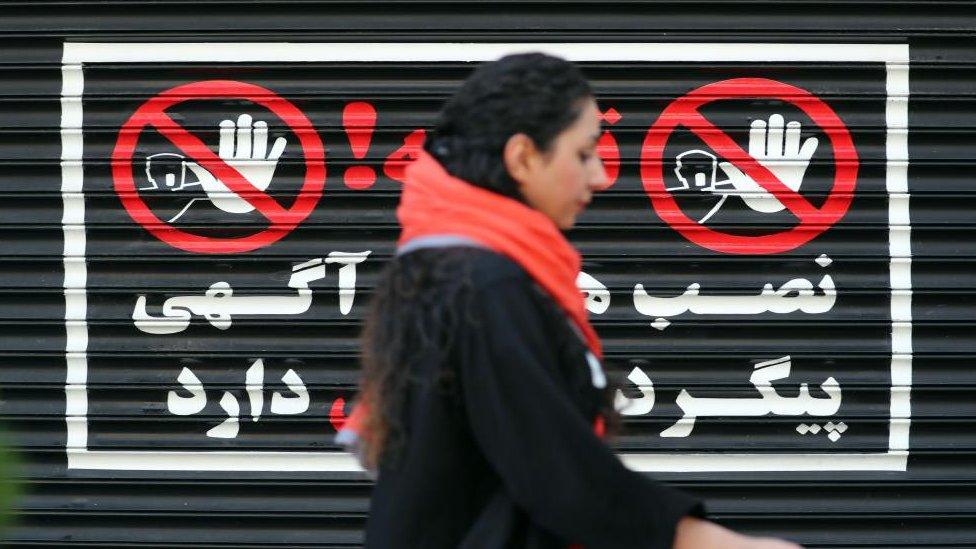'I was in Iran's police - then joined protesters'
- Published
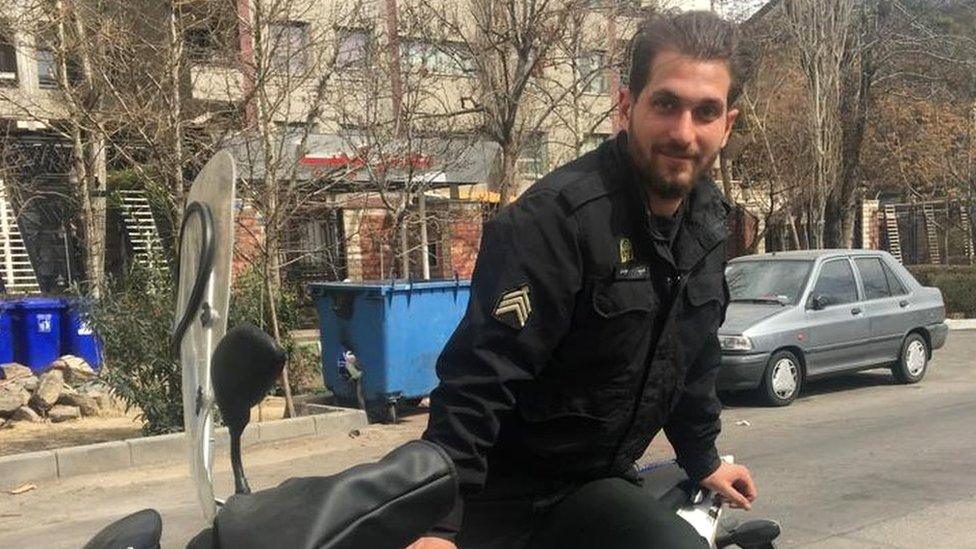
Omid Moradi says he was dismissed from the police after refusing to follow orders to attack protesters
Omid Moradi was a member of the Special Task Forces unit of the Iranian police, tasked with supressing protests. But, conflicted by what he saw, Omid switched sides and joined anti-government protesters. He later defected and fled abroad. Here he tells BBC Persian's Jiyar Gol why he turned.
I meet Omid Moradi near Frankfurt in Germany. Tall and well-built, Omid says he joined the riot police eight years ago, when he was 21.
After he finished his basic training, at Isfahan's Beheshti police academy, he was selected for special service.
"I was chosen to train for the Special Task Forces because I was fit," he says. "We had religious, military lessons, and how to use brutal force against opponents and target them on sensitive parts of the body".
The Iranian police forces comprise several different branches and are thought to have hundreds of thousands of officers.
In recent years, Iran has witnessed several outbreaks of unrest - over the cost of living and human rights - all of which have been brutally supressed. Countless instances of security forces using excessive violence have been documented by human rights organisations.
After completing his training, Omid was deployed to Tehran. His first assignment, in 2016, was to break up a protest by pensioners angry over a rise in inflation.
"We were in a group of 20 motorcycles, each carrying two armed police officers," he recalls. "Our job was to scare people and disperse them."
However, Omid says that he often resisted carrying out his commanders' orders to attack protesters. His defiance led to several reprimands, and eventually, four years ago, he was dismissed from the force.
Omid says many of his former colleagues felt the same way.
"Many members of the Iranian police forces grapple with moral and ethical dilemma. They are tired of being used as an instrument of oppression to sustain the regime."
In Iran, it is unheard of for any member of the police or militias loyal to the supreme leader to be charged with using excessive use of force against protesters or with torturing or killing opponents of the regime.
"When the police chief endorses the brutal actions of his officers, it effectively grants them licence to cause harm or even kill with impunity," Omid says.
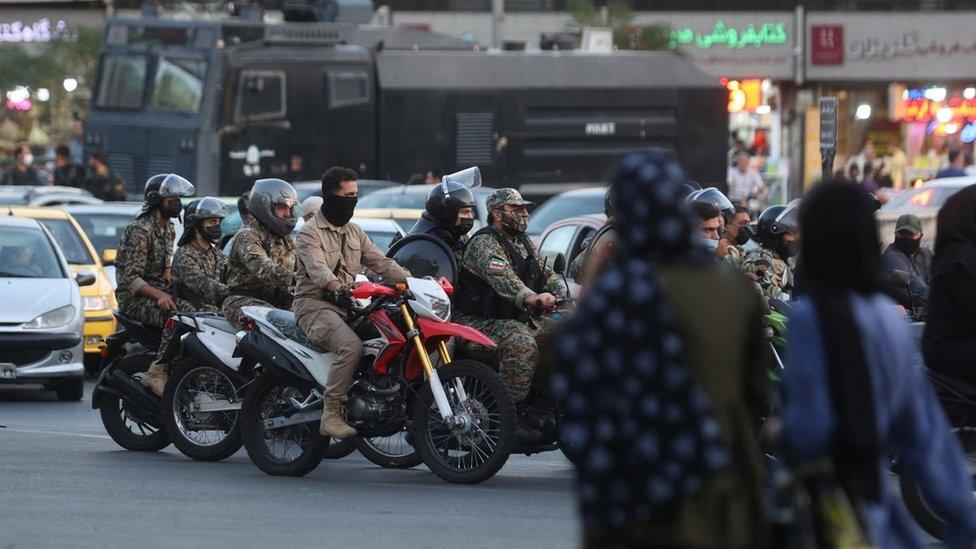
Security forces ride through Tehran last October, at the height of the protests sparked by Mahsa Amini's death
Omid left the police long before the latest protests swept the country following the death in police custody last September of a Kurdish Iranian woman, Mahsa "Zhina" Amini.
Amini had been arrested for wearing her hijab, or headscarf, "improperly". Her family and supporters say she was beaten to death, refuting official claims that she died as a result of underlying health issues.
The Norway-based Iran Human Rights group says at least 551 protesters - including 68 women and 49 children - have been killed in the government's crackdown.
But ordinary members of the security forces have their own grievances, Omid says. Crippling economic sanctions over Iran's nuclear programme have left the government struggling to pay civil servants, including the police.
There is also, he says, widespread corruption within the Iranian security forces, from top to bottom.
"We had police officers like me who struggled to make ends meet, and in the same force with the same responsibility we had officers who had fancy cars and homes in posh neighbourhoods of Tehran.
"How could they afford it? They would arrest drug dealers and thieves a couple of times, then let them free and tell them they can operate in the area as long as they give a commission of between 20% and 50% to the officers."
Omid says he also saw tension between police, Basij (volunteer militia of government loyalists), and the elite Islamic Revolution Guard Corps (IRGC). He says most police officers, other than riot police, are trained and tend to obey the laws compared to other security forces.
"The IRGC and Basij were ruthless, often firing indiscriminately. We tried to stop them on many occasions, but our superiors always backed them up."
Last year, during the mass protests, Omid switched sides and joined demonstrators in Tehran. He says that while he was trying to help a woman escape arrest, he himself was arrested. While he was in custody, he says, he was tortured both physically and psychologically.
"The police went so far as to contact my mother, falsely telling her that I was on the brink of execution. They recorded my mum's anguished cries and played them back to me in my prison cell. At that moment the world seemed to collapse over my head."
Omid says his father, also a former police officer, paid hefty bribes to former colleagues to get him released.
Fearing re-arrest, Omid escaped Iran and using smuggling routes managed to get to Germany. He is now applying for asylum.
Related topics
- Published15 September 2023

- Published15 September 2023
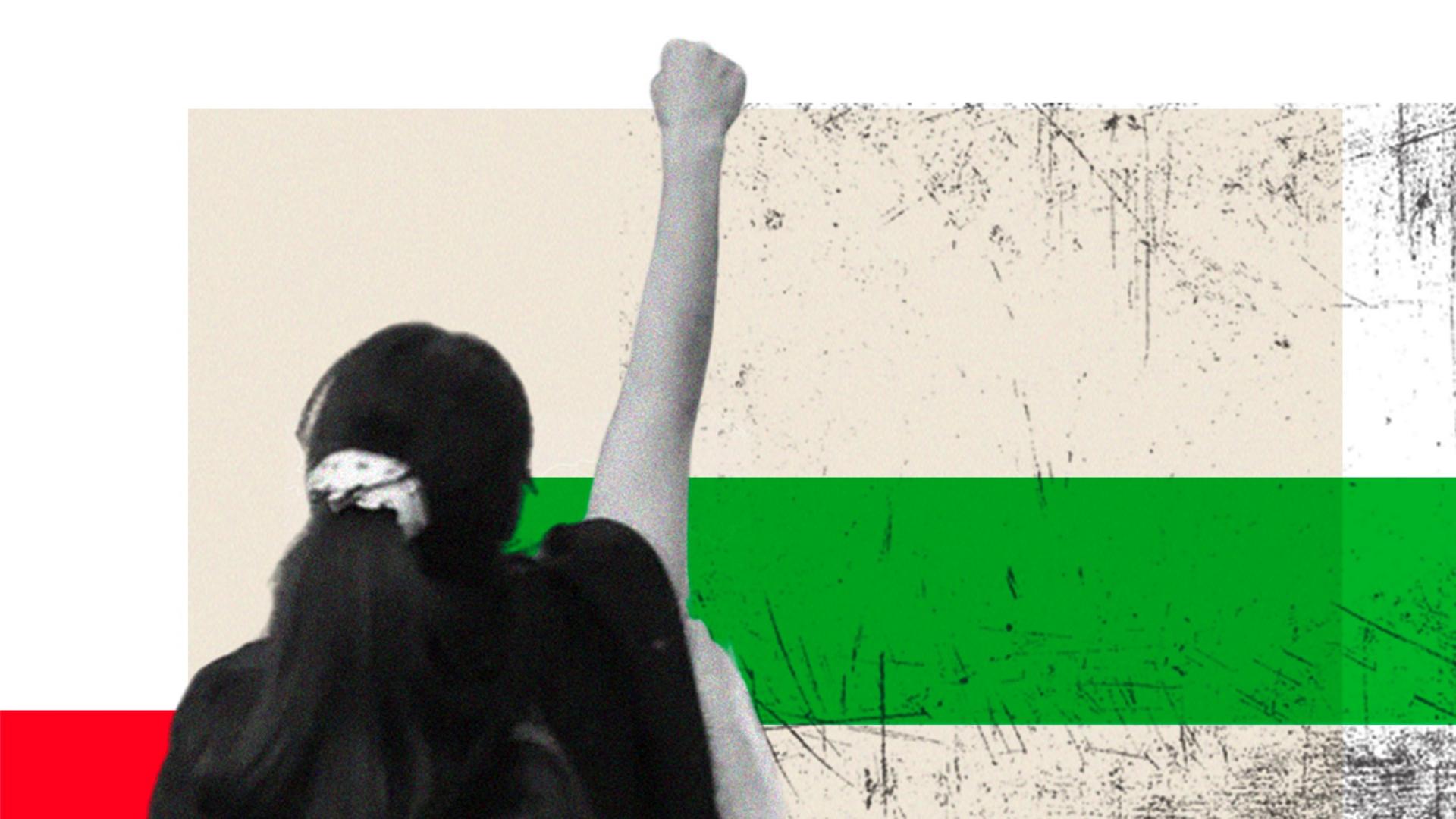
- Published12 June 2023
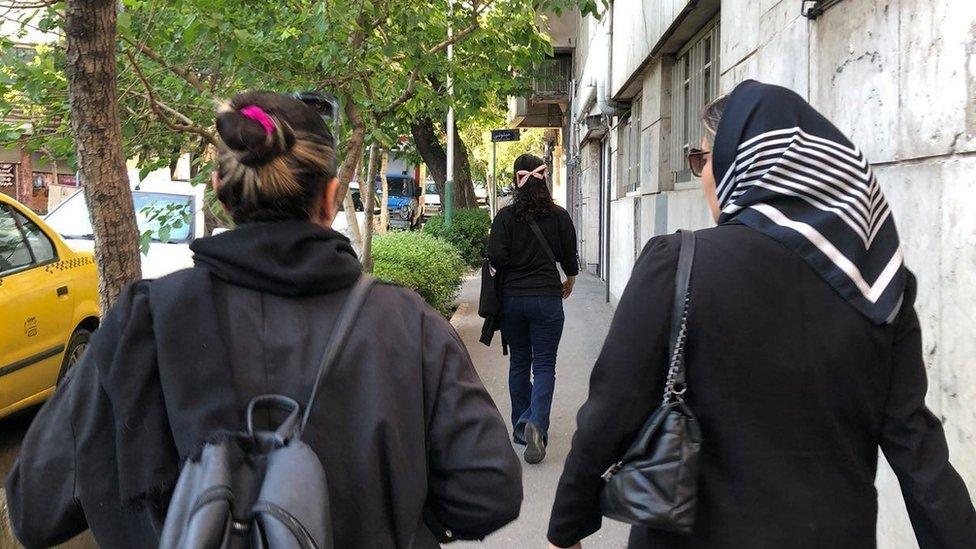
- Published27 July 2023
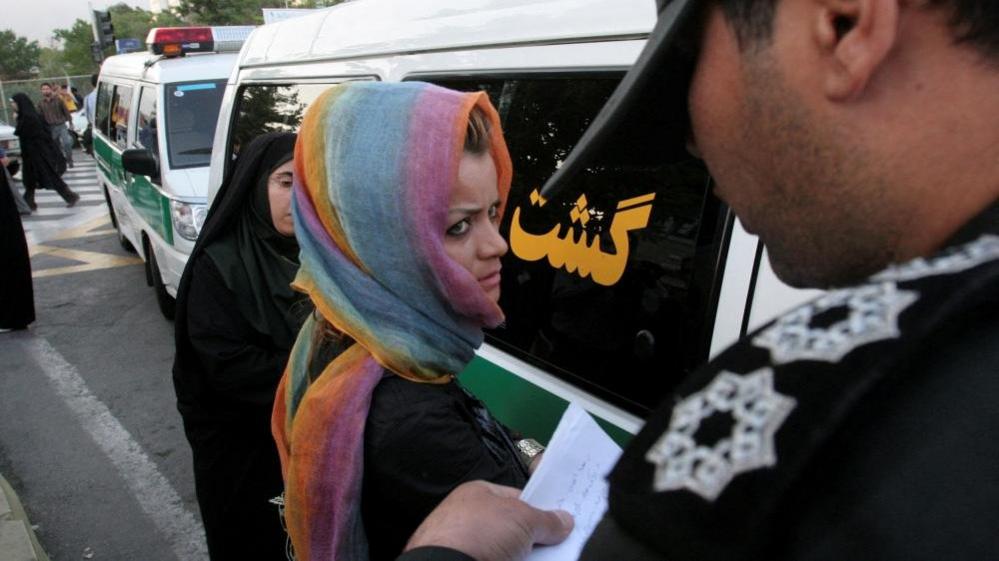
- Published13 August 2023
